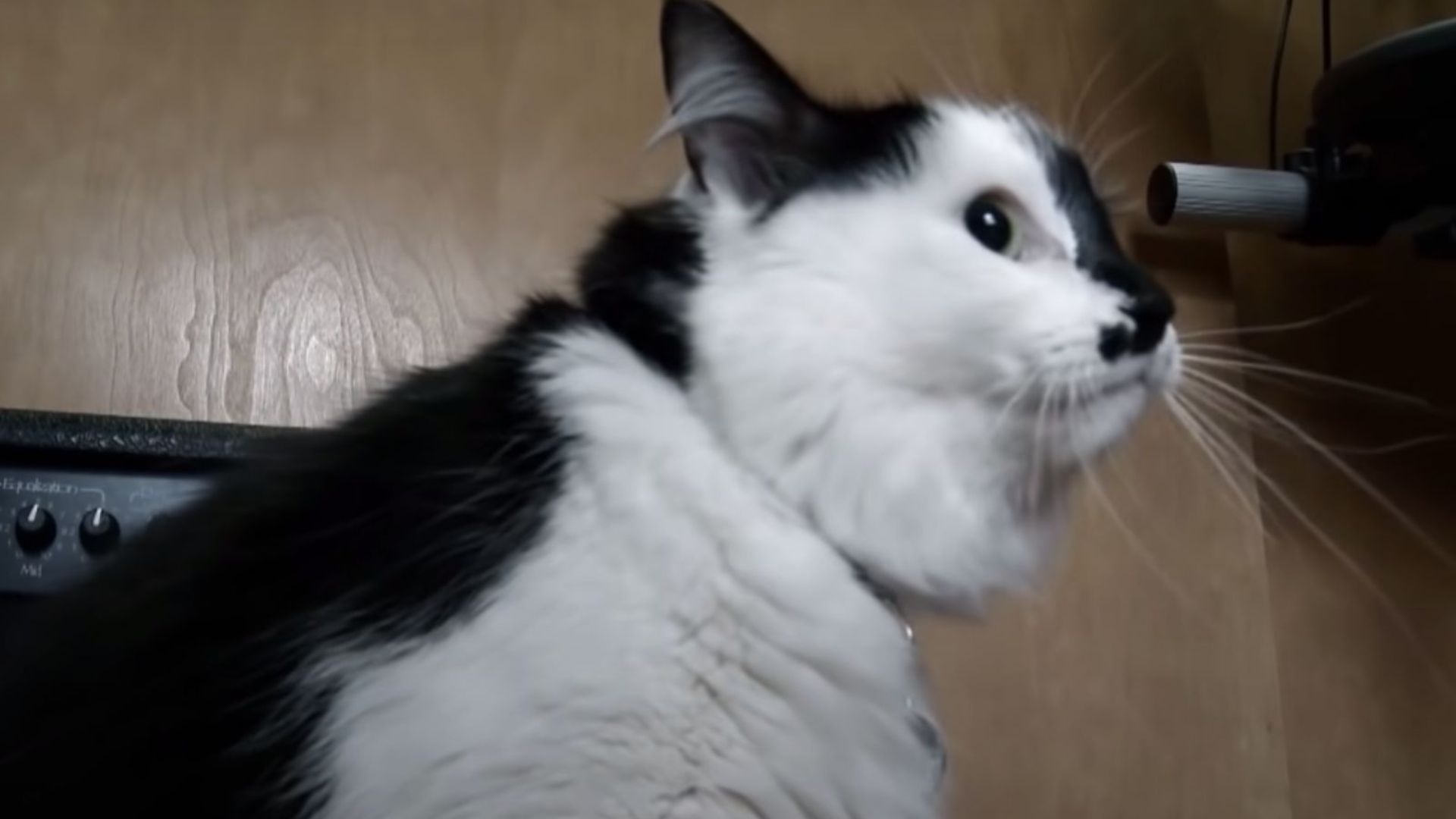PORTLAND, Ore. – Theresa Barker and Lee Palmer never thought their beloved Himalayan cat, Lux, would one day make national headlines. The 22-pound feline, known at home for his unpredictable moods, turned into the center of a frightening ordeal that left the family questioning his future—and revealed a shocking medical twist.
The Incident That Sparked Alarm
The trouble began when Lux suddenly lashed out at the couple’s 7-month-old baby. The infant escaped with only minor scratches that didn’t require medical treatment, but the episode quickly escalated.
Lux trapped the family in their bedroom, growling and howling so ferociously that Theresa and Lee dialed 911 in fear. The emergency call, with the cat’s angry cries echoing in the background, quickly gained media attention.
While Lux had shown flashes of aggression in the past, this was the most extreme incident yet. For the first time, the couple seriously questioned whether it was safe to keep him in their home alongside a baby.
Seeking Professional Help
Determined not to give up on their pet too quickly, Theresa and Lee reached out to Multnomah County Animal Services for guidance. It soon became clear that Lux’s behavior wasn’t just a passing phase or a matter of poor discipline. He needed expert help.
That’s when they turned to Jackson Galaxy, the cat behaviorist famous for the television series My Cat From Hell. With more than 15 years of experience handling challenging feline cases, Galaxy agreed to investigate Lux’s troubling behavior.
A Medical Revelation
Galaxy observed Lux’s aggression closely but soon realized the issue wasn’t only behavioral. A veterinary examination revealed that Lux suffered from feline hyperesthesia syndrome, a neurological condition that can trigger sudden bursts of agitation, self-directed attacks, or unpredictable aggression.
The syndrome has no cure. Treatment involves medications to help manage symptoms, but even with therapy, Lux’s behavior could never be fully controlled.
A Heartbreaking Decision
The discovery placed Theresa and Lee in an agonizing position. They adored Lux, but Galaxy cautioned them that he could never be considered completely safe around their child.
After difficult discussions, the couple made the responsible choice to rehome Lux. Though it was painful to let go of a pet they had loved for years, they prioritized their baby’s safety while also recognizing Lux needed an environment better suited to his condition.
A New Beginning for Lux
The story didn’t end in tragedy. During his evaluation, Lux was temporarily placed with another family who quickly bonded with him. They chose to adopt him permanently, giving him a stable home where he could receive medication, patience, and calm surroundings.
In his new environment, Lux began to settle, showing fewer aggressive outbursts and adapting to a lifestyle more compatible with his needs.
Lessons in Responsible Pet Ownership
Lux’s case highlights the complex realities of pet ownership. Sometimes, loving an animal doesn’t mean keeping it at all costs. It means recognizing when another home or environment can provide a safer, happier life.
“Being responsible isn’t always about holding on,” Galaxy explained. “Sometimes it’s about making the hard choice that ultimately benefits both the pet and the family.”
Lux’s story underscores that every animal, like every person, has unique quirks, challenges, and requirements. Understanding those needs—and being willing to seek expert advice—can make the difference between a crisis and a second chance.
Moving Forward
For Theresa and Lee, the decision was bittersweet, but they take comfort in knowing Lux is thriving in his new home. For Lux, the combination of medical care and a supportive household has given him the opportunity to live peacefully.
And for families everywhere, his story serves as a reminder: true love for a pet sometimes means letting go, ensuring they find the life that suits them best.
















Leave a Reply